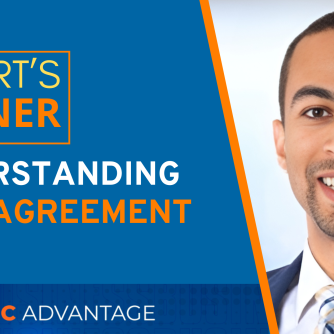For aspiring founders, one of the most critical decisions you’ll make early on is selecting the right legal structure for your startup. The path you choose will impact everything from ownership control and taxes to how investors view your company when it’s time to raise capital. To shed light on this crucial topic, Elio Harmon of 614Startups sits down with Demetrius Robinson, Startup Legal Partner with KJK, to discuss how to navigate the legal landscape before approaching venture capitalists. Demetrius provides key insights into the options available, the common pitfalls, and the strategies that will best position your startup for success. Whether you’re just getting started or preparing to scale, understanding the right legal structure can make all the difference.
Elio Harmon: Demetrius, thanks for joining us on 614Startups. Let’s dive right in—what’s the first thing a founder should consider when choosing a legal structure for their startup?
Demetrius Robinson: Thanks for having me, Elio. The first consideration is understanding the goals and vision for your startup. Are you building something that you intend to scale rapidly, raise venture capital, and possibly exit through a sale or IPO? Or is it more of a lifestyle business that will stay smaller and provide long-term income? The structure you choose—whether it’s a sole proprietorship, partnership, LLC, or corporation—needs to align with your long-term vision because each comes with different tax implications, liabilities, and governance requirements.
Elio Harmon: Great point! Now, many founders hear terms like LLC, S-Corp, and C-Corp thrown around. Can you break down the differences and explain which one might be best suited for a startup planning to raise venture capital?
Demetrius Robinson: Absolutely. LLCs are popular for their flexibility and pass-through taxation, meaning profits and losses pass through to the owners’ personal tax returns. S-Corps also offer pass-through taxation but come with more restrictions, such as limits on the number of shareholders. The C-Corp is usually the best option for startups seeking venture capital because it allows for multiple classes of stock, which VCs prefer. C-Corps also have a clear separation between owners and the entity, which reduces personal liability. Additionally, VCs are familiar with the tax treatment of C-Corps, particularly around things like Qualified Small Business Stock (QSBS) exemptions, which provide significant tax advantages.
Elio Harmon: Speaking of VCs, let’s say a founder has already set up their startup as an LLC but now wants to attract venture capital. Is it possible to switch to a C-Corp, and if so, what does that process look like?
Demetrius Robinson: Yes, it’s definitely possible, and in fact, it’s a common scenario. The process is called a conversion, where the LLC is restructured as a C-Corp. You’ll need to work with a lawyer to file the appropriate paperwork in the state where the company is registered, and there may be tax implications depending on when and how the conversion is done. However, the earlier you make this switch, the easier it will be. It’s important to note that VCs usually won’t invest in an LLC, so if you’re serious about raising venture capital, converting to a C-Corp is almost a requirement.
Elio Harmon: What about founders who want to retain more control over the company? How does legal structure affect their ability to maintain ownership and decision-making power after taking on outside capital?
Demetrius Robinson: This is a great question, and it’s where understanding different stock classes comes into play. In a C-Corp, you can issue different classes of stock, such as common stock for the founders and preferred stock for investors. Preferred stockholders often get certain privileges, like first dibs on dividends or liquidation proceeds, but common stockholders, typically the founders, can retain voting control. Some founders also set up dual-class stock structures where one class of stock has greater voting power. This allows you to raise capital while keeping control of key decisions.
Elio Harmon: Let’s talk about mistakes. What’s one of the most common legal missteps you see early-stage founders make when setting up their companies?
Demetrius Robinson: One of the biggest mistakes is not thinking ahead when it comes to equity and ownership. Founders often distribute equity too early, sometimes as a quick fix to bring in a partner or reward an early employee, without considering the long-term implications. It’s crucial to have clear vesting schedules and founder agreements in place. These agreements should outline what happens if someone leaves the company early or doesn’t contribute as expected. Without these protections, founders can find themselves in tough situations where a significant portion of equity is tied up in inactive co-founders or employees.
Elio Harmon: That’s a great point. Finally, what advice would you give to a first-time founder who’s unsure about navigating these legal decisions?
Demetrius Robinson: My advice is simple—don’t do it alone. A lot of founders try to handle legal matters on their own to save costs, but the reality is that mistakes made at this stage can be very expensive down the line. Partner with an attorney who understands startups and venture capital. They’ll help you avoid common pitfalls and make sure your legal foundation is solid. It’s also important to build a strong advisory team, including legal, accounting, and business mentors, to ensure you’re making informed decisions as you grow.
This interview provided valuable insights into the legal side of launching a startup, especially as founders prepare for venture capital. Demetrius Robinson’s expertise offers actionable guidance on structuring your company for growth while minimizing risks. Whether you’re at the idea stage or preparing to raise your first round, the right legal strategy can set you up for long-term success.







